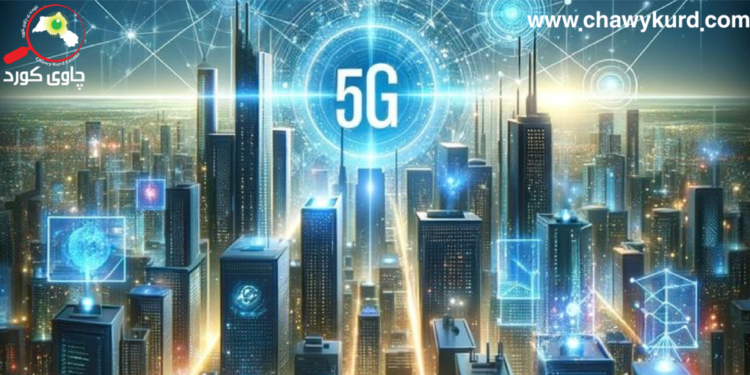5G is the fifth generation of mobile networks and a new global wireless standard, after 1G, 2G, 3G, and 4G. 5G is a new type of Internet network designed to connect everything and everyone. Wireless technology (5G) aims to offer higher speeds, lower latency, greater reliability, broader networks, and greater availability to its users.
“How does (5G) technology work?”
Wireless communication systems use radio waves to store information in an airborne medium. 5G works in the same way, but uses higher radio frequencies that are less random. This makes it carry more data and at the same time have a higher average speed. These “radio oscillations” bands are called “millimeter waves” that were not used before, but were opened by experts for experimental purposes. While higher bandwidth is faster at storing data, it may run into problems when sending data to a very distant point because they are easily obstructed by objects such as trees and buildings. To overcome this problem, (5G) uses diversified antennas to boost its signals in a wireless network. The technology also uses small transmitters, which are placed in buildings and streets. It is estimated that 5G can support more than 1,000 devices per square meter. The technology can also divide a physical network into smaller virtual networks, allowing the network operator to work on the part he wants, based on how he uses it, thus better managing the network.
“Will (5G) replace (4G)? And when?”
5G will not replace 4G recently. It is estimated that 5G will completely replace 4G decades before it disappears completely. This is true for rural and remote areas, because the cost of deploying this technology is high, while they do not need it compared to cities.
What are the benefits of 5G for society?”
The development of 5G is expected to add trillions of dollars in economic value and create millions of jobs. However, 5G can benefit society in many other areas.
Smart cities: These cities rely on unlimited Internet of Things (IoT) devices to collect information about traffic, people and economic infrastructure in real time, improve public services, and improve air quality. It can be an incentive to truly connect the world’s important cities.
Health: 5G can add a lot of value to health technology. For example, remote surgery becomes easier due to the delay and transmission of information in real-time in HD quality. Real-time monitoring is important for patient safety and helps doctors detect symptoms earlier.
Environment: (5G) – Helps reduce emissions. One of the advantages of this technology is the ability to broadcast and less capacity than previous networks. It also helps monitor emissions, air quality, water quality and other environmental factors. 5G will also help advance automated driving, smart buildings, smart project networks and remote work. All of this benefits our planet through the use of active resources and reduces environmental pollution.
When is the expected time for full availability of 5G?”
The initial launch of the 5G network will rely on 4G LTE infrastructure, which is expected to be launched in congested areas first. For example, in the UK between 2019 to 2020, 5G networks will be launched in 26 cities. London, Birmingham, Manchester, Edenburg, Cardiff and Belfast were the first cities to introduce the new technology.




























































